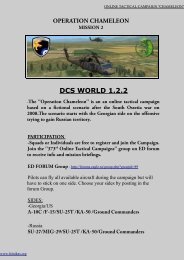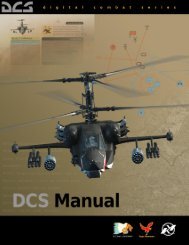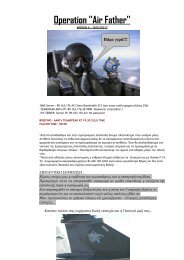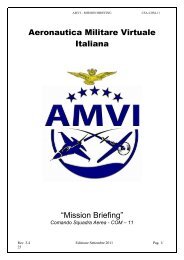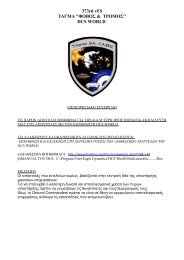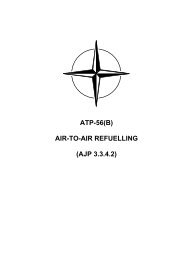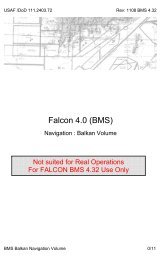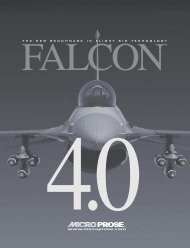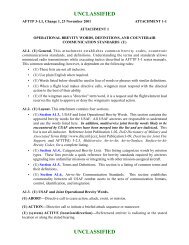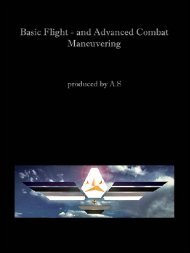You also want an ePaper? Increase the reach of your titles
YUMPU automatically turns print PDFs into web optimized ePapers that Google loves.
English, everything was okay. They’d been on their way in country to Dhahran Air<br />
Base, Saudi Arabia, for a 120-day Southern Watch deployment. This was done<br />
through relays of air-refueling tankers, which started out in the United States. The<br />
fighters would then be “handed off” over the North Atlantic to tankers from bases<br />
in Europe. Sometimes they’d spend the night in Germany or Spain, but often,<br />
depending on the situation, they’d fly all the way in to Saudi or Kuwait. Fourteen<br />
hours in a cockpit the size of a desk was about as much fun as it sounded. In either<br />
case, the fighters would meet up over the eastern Mediterranean with U.S. tankers<br />
temporarily based in Saudi, called the Kingdom, that would take them the rest of<br />
the way in.<br />
Apparently, there’d been a big dust storm, a khamsin, that kept these last<br />
tankers on the ground. Unable to make it to Dhahran and unable to return to<br />
Europe, the fighters had diverted into Beni Suef. Now, every such deployment was<br />
planned out to an amazing level of detail. Every leg of the trip, fuel numbers, divert<br />
bases, and radio frequencies are painstakingly arranged so when something like this<br />
happens, everyone knows what to do. These guys weren’t lost—no one gets lost in<br />
an F-16 crammed with electronic wizardry—they knew exactly where they were<br />
geographically, they just didn’t know where they were, if you follow. They were<br />
simply appalled by their surroundings. You don’t see burned-out aircraft, cratered<br />
runways, and donkeys on a U.S. air base.<br />
I got the extremely nervous Egyptian maintenance officer and a crew of his<br />
minions to bed down the jets. This was done amid much supervision by the stillsuspicious<br />
Americans. The Egyptians were shocked when each pilot pulled out<br />
everything needed for his aircraft from a big travel pod slung beneath one wing.<br />
Chocks for the wheels, intake and canopy covers, oil-sample kits etc. . . . The<br />
Arabs were even more surprised when our guys did all of this themselves. Egyptian<br />
pilots more or less shut their planes down, hopped out, and went to drink tea.<br />
My new friends were less shocked when I led them over to the Oasis (as we<br />
called the General Dynamics compound) and into a few of the villas. They got<br />
positively enthusiastic when they saw the pool and the bar. I was so happy to have<br />
buddies again that, I confess, I didn’t work too hard on their logistical issues for a<br />
few days. Don’t get me wrong—Beni Suef wasn’t a bad place, and the two other<br />
officers with me were good guys, but I missed the camaraderie. Thirty other men<br />
who’ve survived the same screening, years of training, and the constant attrition<br />
are generally priceless to be around. Personal likes and dislikes aside, you know<br />
that you will count on them with your life. They’d die for you. There is no real<br />
equivalent to that in life beyond a fighter squadron. It’s like a fanatically loyal



